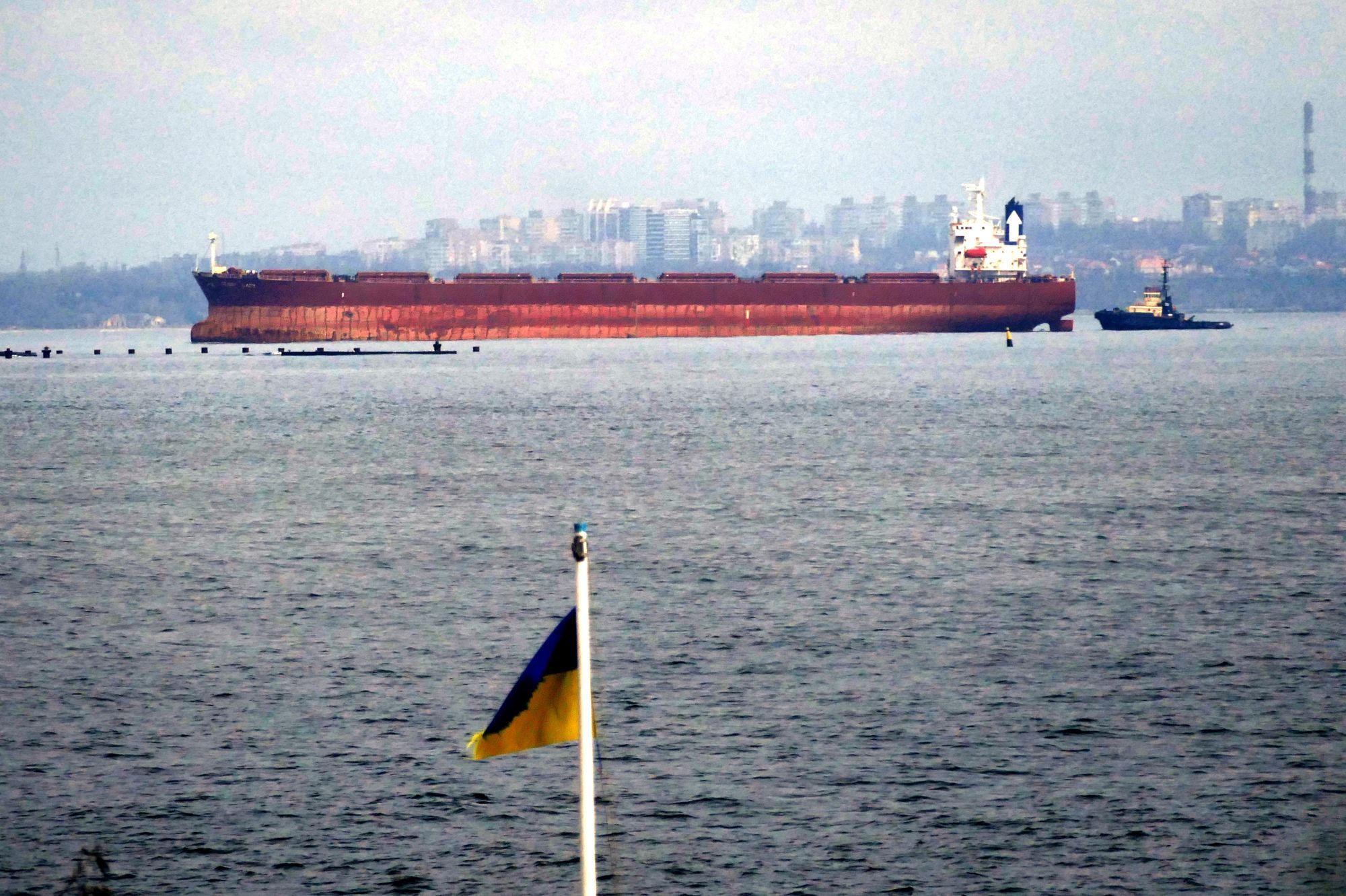Ukraine war latest: US confirms F-16s to be provided to Ukraine via third-party transfers once training completed

Key developments on Aug. 18:
- Washington approves sending F-16s to Ukraine from Denmark and Netherlands
- Southern Command: Russia disperses ships in fear of Ukrainian strikes
- Washington Post: US intelligence thinks Ukraine will fail to reach counteroffensive’s key goal
- General Staff: Russia fails another counterattack at Urozhaine, Ukraine advances in south
- Ukraine's allies discuss grain exports following Russia's termination of deal
U.S. National Security Adviser Jake Sullivan confirmed on Aug. 18 that Washington will approve the third-party transfer of U.S.-made F-16 fighter jets to Ukraine after Ukrainian pilots complete training.
According to Sullivan, Washington is working closely with its European partners on all elements of the training program, including manuals.
Citing a Biden administration official and another U.S. official, CNN reported on Aug. 18 that the U.S. had approved Denmark's request to provide instructional materials for F-16 fighter jets to Ukraine.
The Danish Defense Ministry said on Aug. 18 that training will begin in Denmark later in August in cooperation with the 11 countries that compose the "fighter jet coalition."
Denmark and the Netherlands also confirmed they had received approval from the U.S. to hand over F-16s from their arsenal to Ukraine after pilot training was completed.
Dutch Foreign Minister Wopke Hoekstra called the move "a major milestone for Ukraine to defend its people and its country."
Ukrainian Defense Minister Oleksii Reznikov announced the official formation of a coalition to train Ukrainian pilots on F-16s, led by Denmark and the Netherlands, during the NATO summit in Vilnius back in July.
Ukraine has been actively pushing for the U.S.-made F-16 fighter jets to help counter Russia's air superiority, with many believing that it is necessary to achieve a successful counteroffensive.
Southern Command: Russia disperses ships in fear of Ukrainian strikes
Southern Command spokesperson Nataliia Humeniuk said on Aug. 18 that Russia has dispersed its naval forces in the Black Sea between the southeastern coast of Crimea and Novorossiysk, fearing more Ukrainian drone strikes.
According to Humeniuk, there are no active duty Russian missile carriers in the Black Sea as of the morning of Aug. 18.
Humeniuk pointed out a growing concern among Russian naval forces regarding Ukraine's "Sea Baby" surface drones. Russian military vessels are reportedly attempting to position themselves within the zones designated for civilian ships as a result. These zones were deliberately established to serve as artificial buffer areas.
The Russian naval port in Novorossiysk came under attack on Aug. 4, with the strike causing serious damage to the Olenegorskiy Gornyak, a military landing craft. Several media outlets reported that the strike had been carried out by the Security Service of Ukraine (SBU) and the Ukrainian Navy using surface drones.
Ukraine's Navy spokesperson Dmytro Pletenchuk said on Aug. 15 that Ukrainian forces had already taken out five large Russian military landing crafts since the start of the full-scale invasion last year.
The Russian Defense Ministry claimed that another Ukrainian naval drone attack in the Black Sea late on Aug. 17 had been thwarted.
Kyiv has not commented on the latest alleged attack, but President Volodymyr Zelensky said in late July that it was an "inevitable, natural, and absolutely fair process" that the war is returning to Russian territory.
Washington Post: US intelligence thinks Ukraine will fail to reach counteroffensive’s key goal
Citing unnamed sources, the Washington Post reported on Aug. 18 that U.S. intelligence believes Ukrainian forces will fail to recapture the key southeastern city of Melitopol this year within the scope of the ongoing counteroffensive.
Failure to recapture Melitopol would mean that Ukraine cannot fulfill its goal of cutting off the land bridge that connects Russia to the occupied Crimean Peninsula.
Prior to the full-scale invasion, Melitopol had a population of over 150,000 people. Located in Zaporizhzhia Oblast, the city has been under Russian occupation since the start of the full-scale invasion last year. It functions as a logistical hub for the Russian military in southeastern Ukraine concerning the movement of military equipment.
According to the Washington Post, U.S. intelligence's prediction stems from Russia having established an array of minefields and intricate trenches leading up to the counteroffensive, which has reportedly slowed down Ukrainian forces' progress.

General Staff: Russia fails another counterattack at Urozhaine, Ukraine advances in the south
The General Staff of Ukraine's Armed Forces reported on Aug. 18 that Russian forces failed to launch additional counterattacks around the recently-liberated village of Urozhaine in Donetsk Oblast.
Additionally, Ukrainian forces are continuing their offensive operations in the directions of Melitopol and Berdiansk, solidifying their recaptured positions while also engaging in effective counter-battery fire operations, the General Staff's report reads.
Urozhaine was confirmed as the latest settlement to be liberated on Aug. 16. Russian forces previously attempted to retake it on Aug. 17, with no success.
According to the General Staff, around 30 combat engagements occurred on Aug. 18.
Russian forces launched one missile strike, 31 airstrikes, and 45 attacks by multiple launch rocket systems against Ukrainian military positions and populated areas, injuring and killing civilians.
Ukraine's allies discuss grain exports following Russia's termination of deal
Ukraine's allies are considering how to transport its grain exports following Russia's termination of the Black Sea Grain Initiative in mid-July.
Romanian Prime Minister Marcel Ciolacu said on Aug. 18 that Bucharest hopes around 60% of Ukrainian grain exports could be transited through Romanian territory.
Moldovan President Maia Sandu also said in an interview on Aug. 18 that her country was working with partners to help Ukraine export its grain while taking into account the interests of Moldovan farmers.
"The Republic of Moldova has been offering Ukraine assistance with grain transit since the beginning of the war. Not only now, when the Danube ports were bombed," Sandu said, referencing Russian attacks against the Ukrainian river ports of Izmail and Reni.
"We are also negotiating with Ukraine, Romania, and the European Commission on how to include the interests of Moldovan farmers and to ensure the transit of grain from Ukraine," Sandu added.
At the same time, the German newspaper Bild reported on Aug. 18 that Turkey, Qatar, and Russia are preparing a new agreement on grain exports that would see Russia exporting its own grain primarily to countries on the African continent.
The Financial Times previously reported in late July that the Kremlin was seeking to establish a new grain deal in cooperation with Turkey and Qatar. However, the outlet noted at the time that neither of the two countries had so far agreed with the idea.
The Black Sea Grain Initiative, which was originally brokered by Turkey and the U.N. in July 2022, was essential in mitigating a global surge in food prices partially caused by Russia's full-scale war against Ukraine. It allowed Ukraine to export its agricultural products via the Black Sea despite the ongoing invasion.
Russia repeatedly threatened to withdraw from the deal, demanding concessions relating to its own agricultural exports.














